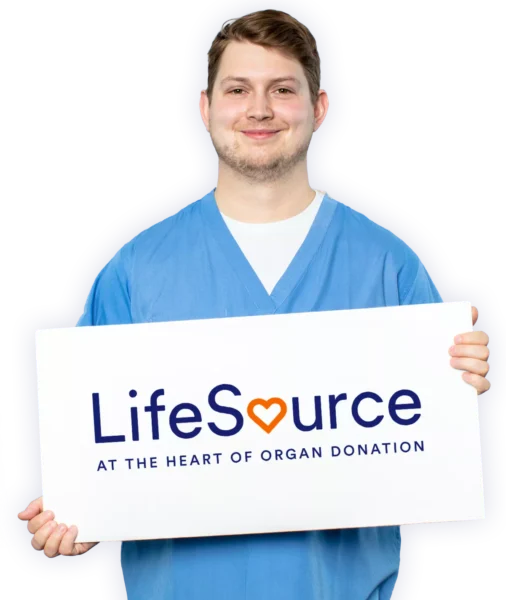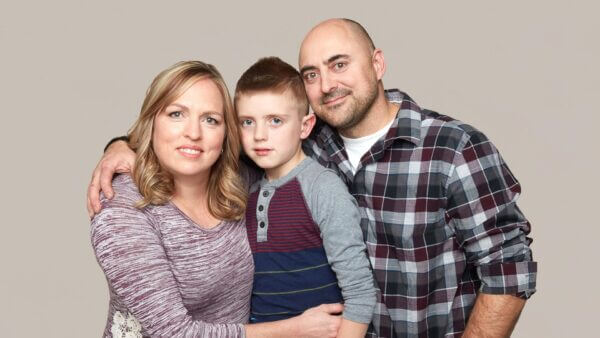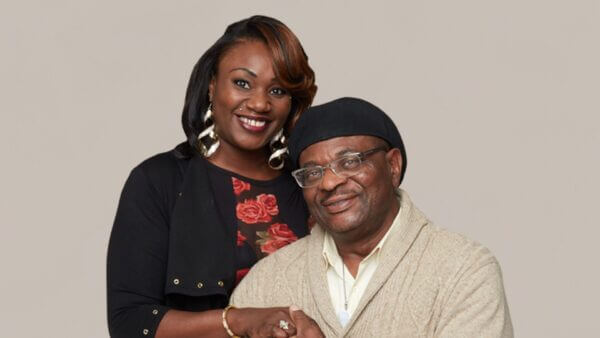Thanks for your curiosity
The Men Are the Answer campaign was created to call attention to the fact that while men’s lives are greatly impacted by organ donation, fewer men are registered donors. We aim to change the statistics and give everyone in need a second chance, made possible by the gift of donation.

Who's behind this campaign?
This campaign is led by LifeSource – a federally-designated, nonprofit medical organization responsible for managing the organ donation process in Minnesota. Our team exists as an independent, intermediary organization between hospitals and the transplant centers to ensure the integrity of the donation process is equitable and that the families of donors are informed and supported every step of the way.
Interested in learning more about the organ donation process, who LifeSource is or the research supporting this campaign?
Want to know more? We've got you covered.
Here are answers to the top questions other Minnesotans have about organ donation.
Saving your life always comes first
If you’re taken to the hospital after an accident or injury, it’s the hospital’s number one duty to do everything they can to save YOUR life. The hospital team is not aware of your donation status, and you’re not considered for donation until every effort has been made to save your life.
Your existing health condition does not prevent you from registering
Don’t rule yourself out! There are only a few conditions that would disqualify someone from organ donation, such as active cancer or a systemic infection. Even people with diabetes, high blood pressure or cholesterol, hepatitis or a history of cancer can sometimes donate their organs.
Yes, if you want, you can have an open casket funeral or viewing
If you’re planning an open casket funeral or viewing, these plans should not be affected by donation. LifeSource partners with funeral homes to ensure a smooth transition from the time of donation to end-of life preparations.
It doesn't cost anything to be a donor
Many people wonder if there is a cost to them or their family to be an organ donor and the answer is no – LifeSource is required to pay for all medical costs associated with organ donation. Those costs are then covered by the recipient’s transplant center as part of the cost of their transplant.
Donation can only happen under specific circumstances
Regardless of your condition, the hospital staff won’t know your donor status and your eligibility as a donor can only be checked by LifeSource when you meet these key requirements:
- a person must pass away in a hospital on ventilated support
- and experience brain death or a non-survivable injury.
Transplant recipients are selected based on multiple factors
As each organ is evaluated, an independent national system ranks potential recipients according to who is medically the best match, the sickest, and the closest to the donor. Ethnicity, gender, religion and financial status are never considered. In particular, the following factors are used to determine the best recipient for each available organ: body size, severity of the recipient’s medical condition, distance between the donor’s hospital and patient’s hospital, the recipient’s waiting time, and whether the recipient is healthy enough for transplant surgery.
All major religions support organ donation
Your religious and spiritual beliefs will be respected. All major religions in the U.S. support organ donation and consider it an act of generosity and selflessness.
So, what is the donation process?
When we asked men what they want to know about organ donation, the top answer was learning how the process works. Check out this short video to learn more!
More to explore
Have you seen the campaign around town or online? Interested in learning more about how donation impacts others? Take a few minutes and check out these videos!




Join the national organ donor registry now!
We are calling on men, but we still need every Minnesotan to register!
Regardless of gender, age, race, religion or health; you can still share the gift of life. Use this secure form to register as an organ, eye and tissue donor. Your data will be safely stored and used only for the purposes of verifying your donation decision.
